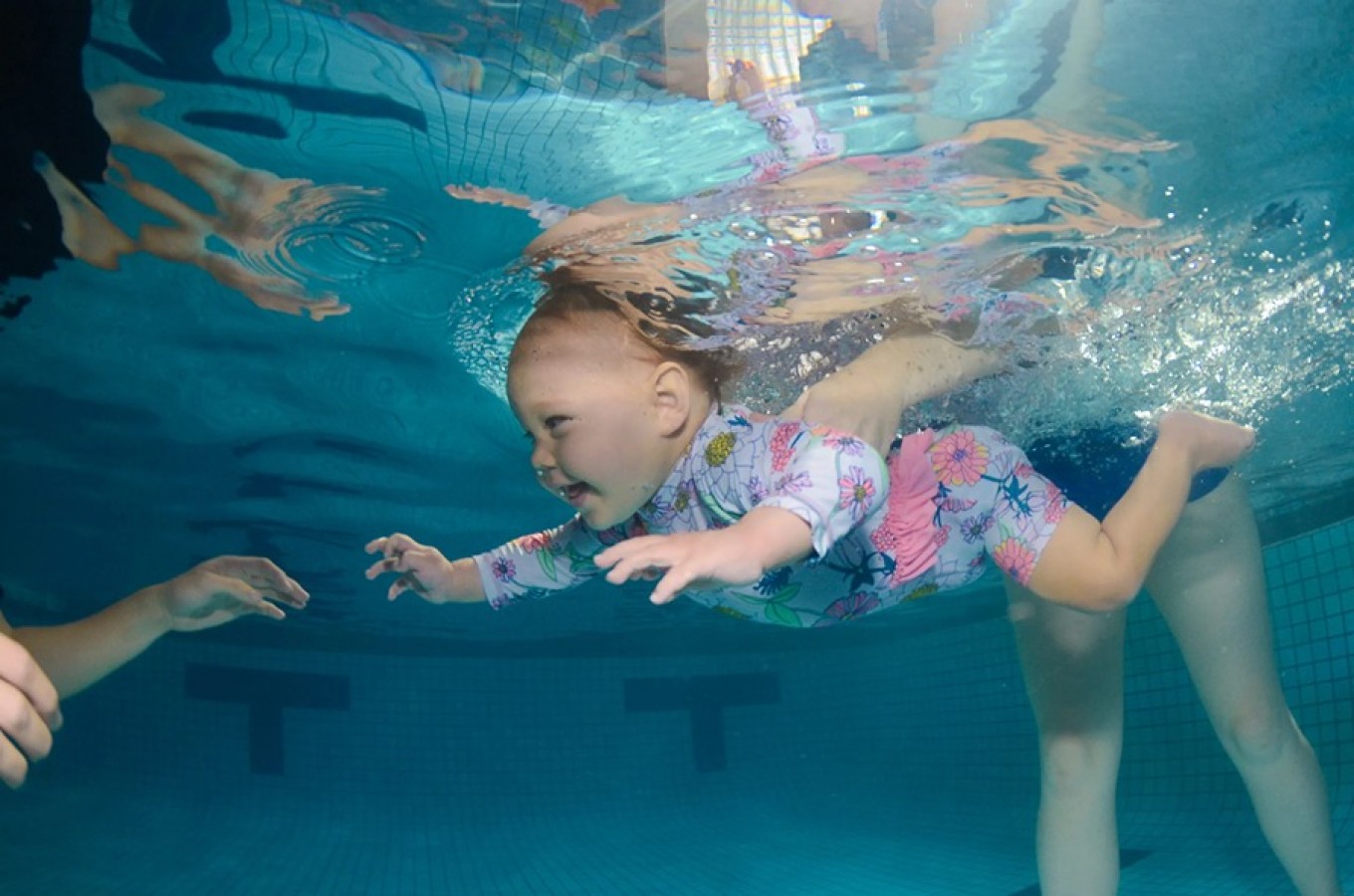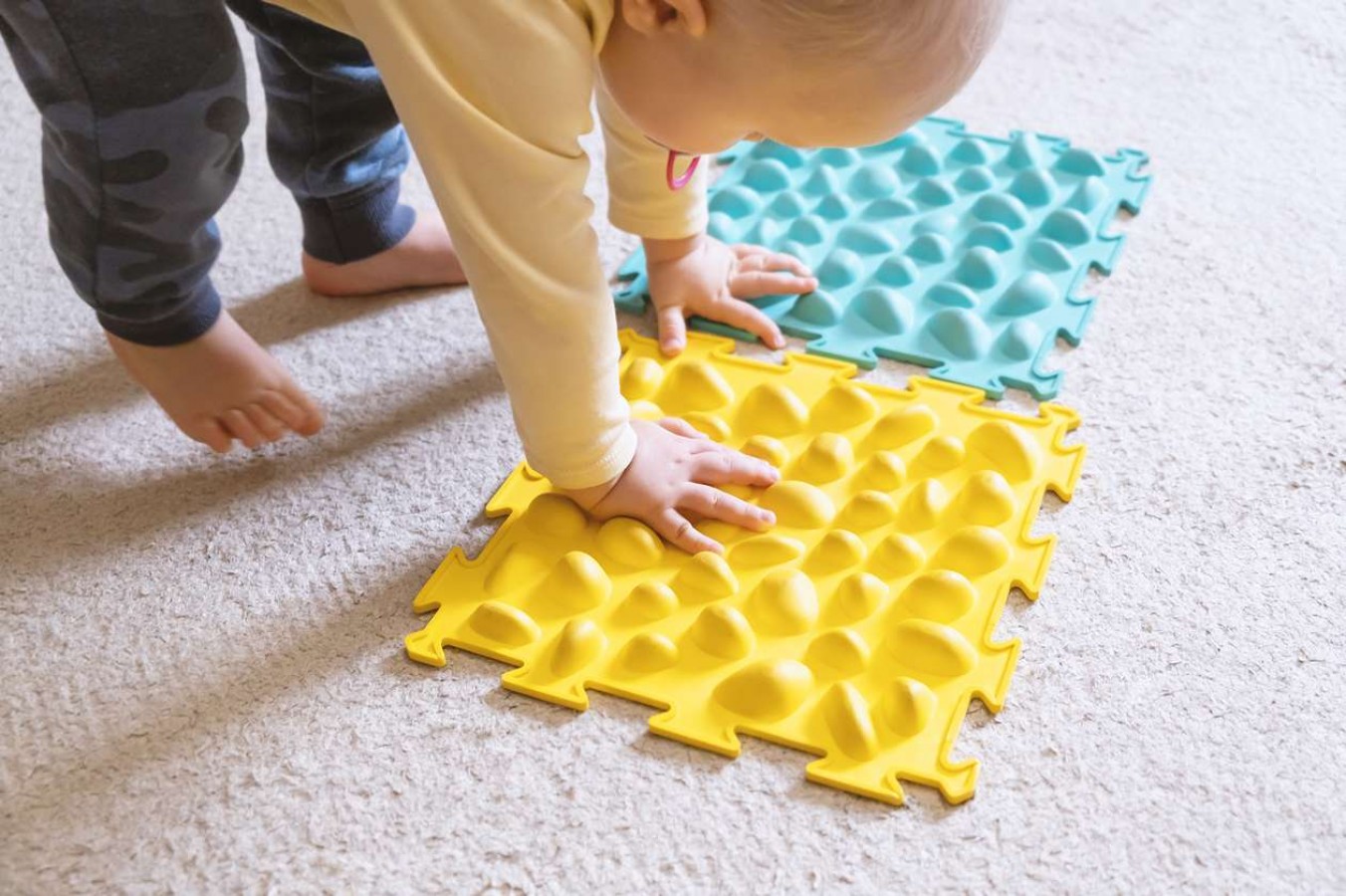The Benefit of Toddler Swimming with 10 Health Advantages

Swimming is often considered a fun recreational activity, but did you know that it offers a plethora of health benefits for infants and toddlers? The benefits of toddler swimming extend far beyond the joyous giggles and adorable floaties.
Toddler swimming goes beyond the realm of fun, it is a holistic experience that contributes to the overall well-being of your little one. In this article, we'll explore 10 health benefits of toddler swimming, emphasizing the positive impact it can have on your child's physical and mental development.
Health Benefits of Swimming
Swimming is often perceived as a recreational activity, but its benefits extend far beyond mere enjoyment. For infants and toddlers, plunging into the waters becomes a potent force, propelling comprehensive health and developmental benefits.
Beyond the surface of enjoyment lies a transformative journey, where the benefits of toddler swimming ripple through the fabric of a child's overall well-being. Here are the health advantages that make swimming a valuable activity for the tiniest swimmers:
1. Improve Cognitive Functioning
Swimming is not just a physical exercise, it's a mental workout as well. The sensory experiences in the water, combined with the need to coordinate movements, stimulate cognitive function.
Research suggests that children engaging in regular physical activities like swimming often exhibit improved problem-solving skills, enhanced memory retention, and a generally sharper mental acuity.
2. Improve Confidence
Learning to swim is a significant milestone that can boost a toddler's self-esteem and confidence. Overcoming the challenges of floating, paddling, and navigating the water instills a sense of accomplishment.
This newfound confidence often extends beyond the pool, positively impacting a child's willingness to explore new activities and engage with their surroundings. The mastery of water skills can be a powerful tool in building a child's belief in their own capabilities.
3. Provides Physical Exercise
Swimming is a full-body workout that engages various muscle groups simultaneously. For infants and toddlers, whose bodies are in a phase of rapid growth and development, the resistance of water provides a comprehensive exercise experience.
From kicking to paddling, each movement contributes to the development of motor skills and overall physical fitness. Regular swimming sessions offer a fun and effective way to promote an active and healthy lifestyle from a young age.
4. Aids Cardiovascular Health
The cardiovascular benefits of swimming are significant, even for the youngest participants. The rhythmic nature of swimming, combined with the resistance of water, creates an environment that promotes heart health.
As toddlers engage in swimming activities, their heart and lungs work to meet the increased demand for oxygen, contributing to improved cardiovascular fitness. Establishing these healthy habits early on sets the stage for a lifetime of heart health.
5. Builds Muscle
Swimming provides a unique form of resistance training for toddlers. As they move against the water's resistance, various muscle groups are activated and strengthened.
This holistic approach to muscle development ensures balanced growth and contributes to overall physical strength. From the core muscles used for balance to the limbs engaged in paddling and kicking, swimming offers a comprehensive muscle-building experience.
6. Reduces Stress & Anxiety
The calming and soothing effects of water are well-documented. For toddlers, who may experience moments of stress and anxiety, swimming offers a therapeutic escape.
The buoyancy of water reduces the impact on joints, creating a low-impact exercise that is gentle on the body. This, combined with the sensory experience of being in the water, creates a serene environment that can alleviate stress and promote relaxation in young children.
7. Promotes Coordination and Balance
Swimming involves a combination of coordinated movements—kicking, paddling, and reaching. These actions help toddlers develop and refine their motor skills, promoting coordination and balance.
Navigating the water requires a synchronization of limb movements, fostering a sense of spatial awareness and enhancing overall physical coordination.
8. Improves Sleeping Patterns
The calming effect of water, combined with the physical exertion of swimming, contributes to improved sleep patterns in infants and toddlers. The rhythmic nature of swimming induces a state of relaxation, making it easier for little ones to transition into a restful night's sleep.
Parents often notice a positive change in their child's sleep quality after regular swimming sessions.
9. Improves Appetite
Swimming can have a positive impact on a toddler's appetite. The energy expended during swimming sessions tends to stimulate a healthy appetite, encouraging toddlers to consume the nutrients necessary for their growth and development. It's a delightful way to enhance both physical activity and nutritional habits.
10. Builds Character
Swimming is not just about strokes and kicks, it's about building character. The challenges of learning to swim—overcoming fear, persevering through difficulties, and embracing new skills—contribute to the development of essential character traits. Toddlers learn resilience, determination, and patience, setting a foundation for a positive and proactive approach to future challenges.
Ready to Embark on This Aquatic Adventure?
Incorporating swimming into your toddler's routine goes beyond providing a fun activity, it offers a myriad of health benefits crucial for their overall development. From physical strength to cognitive enhancement and safety skills, the advantages of toddler swimming create a holistic approach to well-being.
At Rockstar Academy, we believe in nurturing not just skills but a passion for life. We invite you to experience the magic firsthand with our early childhood swimming program.
Our Sports & Performing Arts Academy takes a holistic approach to child development, and our early childhood swimming program is no exception. What are you waiting for? Join us at Rockstar Academy, where every splash is a step towards unlocking your child's full potential!
FAQ
1. What are the benefits of baby swimming?
Baby swimming offers a range of benefits, including improved cognitive development, enhanced motor skills, increased confidence, and the promotion of a strong parent-child bond. Additionally, it fosters water safety awareness from an early age.
2. What are the effects of baby swimming?
Baby swimming positively impacts a child's physical and mental development. It contributes to muscle strength, cardiovascular health, and coordination. The sensory experiences in water also stimulate cognitive functions. Furthermore, baby swimming creates a calming environment, reducing stress and anxiety in infants.



